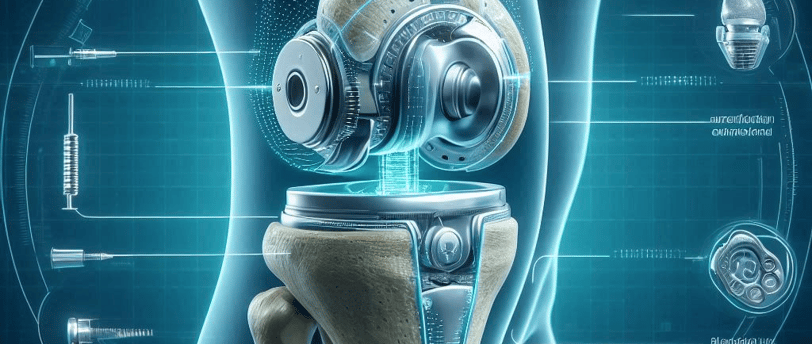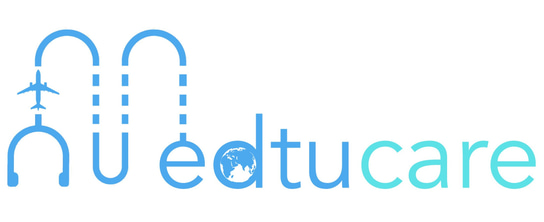Total Knee Replacement (TKR): Your Guide to a Pain-Free, Active Life


Chronic knee pain, stiffness, and limited mobility can be debilitating, impacting your quality of life and hindering your ability to engage in activities you love. If conservative treatments have failed to provide relief, total knee replacement (TKR) surgery, also known as knee arthroplasty, can offer a life-changing solution.Write your text here...
When is Total Knee Replacement Necessary?
TKR is not the first line of treatment for knee problems. Doctors usually recommend it when other conservative measures, such as medication, physical therapy, injections, or lifestyle modifications, have not yielded satisfactory results.
The most common reasons for needing TKR include:
Osteoarthritis: This is the most frequent reason for TKR. It's a degenerative joint disease where the cartilage that cushions your joints breaks down, leading to bone-on-bone friction, pain, stiffness, and inflammation.
Rheumatoid Arthritis: An autoimmune disease where the body's immune system attacks the lining of the joints, causing pain, swelling, and stiffness.
Post-traumatic Arthritis: This type of arthritis develops after a significant knee injury, such as a fracture or ligament tear.
Other Conditions: TKR may also be considered for certain bone tumors, avascular necrosis (bone death due to lack of blood supply), and other conditions causing severe knee damage.
Before Recommending Surgery
Before recommending TKR, your doctor will conduct a thorough evaluation to determine if you are a suitable candidate. This typically involves:
Medical History Review: Your doctor will ask about your symptoms, medical history, previous treatments, and overall health.
Physical Examination: They will examine your knee, assess its range of motion, stability, and alignment, and check for any signs of deformity.
Imaging Tests: X-rays, MRI scans, or CT scans may be ordered to assess the extent of damage to your knee joint.
Blood Tests: These tests are done to check your overall health and ensure you're fit for surgery.
If your doctor determines that you require TKR, they will discuss the different surgical approaches with you and help you choose the most appropriate option based on your individual needs and circumstances.
Understanding Total Knee Replacement Surgery
TKR involves removing damaged bone and cartilage from the knee joint and replacing them with artificial components made of metal alloys, high-grade plastics, and polymers. The goal is to restore the function of the knee, relieve pain, and improve mobility.
Types of TKR Approaches:
Traditional TKR: This involves a larger incision (8-12 inches) and may require a longer hospital stay and recovery time. However, it provides the surgeon with excellent visualization and access to the joint.
Minimally Invasive TKR (MIS TKR): This technique uses smaller incisions (4-6 inches), resulting in less blood loss, lower risk of infection, and faster recovery. However, it may not be suitable for all patients or all types of knee damage.
Partial Knee Replacement: This option is suitable if only one part of the knee joint is damaged. It involves replacing only the affected compartment, preserving more of the natural knee structure.
Computer-Assisted Surgery (CAS): This technology utilizes computer navigation to help the surgeon precisely position the implants, potentially improving the accuracy and longevity of the replacement.
Robotic-Assisted Surgery: Similar to CAS, this approach uses robotic arms to assist the surgeon during the procedure, offering enhanced precision and control.
Recovery and Rehabilitation
Recovery from TKR varies but typically involves a hospital stay of a few days, followed by several weeks of focused rehabilitation. The rehabilitation process is crucial for regaining strength, flexibility, and range of motion in your knee.
Here's what you can expect during recovery and rehabilitation:
Early Mobilization: You'll be encouraged to start moving your knee and walking with assistance soon after surgery to prevent blood clots and promote healing.
Pain Management: You'll receive pain medication to manage discomfort during the initial recovery period.
Physical Therapy: A physical therapist will guide you through exercises to strengthen your knee muscles, improve range of motion, and restore function.
Home Exercise Program: You'll be given a personalized home exercise program to continue your rehabilitation after leaving the hospital.
Assistive Devices: You may need to use crutches, a walker, or a cane for support during the early stages of recovery.
Lifestyle Modifications: You'll likely need to make some adjustments to your daily activities and routines to protect your new knee and promote healing.
Medtu Care: Your Partner in TKR Journey
If you're considering TKR , Medtu Care can be your trusted partner. We understand that undergoing surgery in a new country can be daunting, that's why we offer end-to-end support to ensure a smooth and successful experience:
Expert Report Review and Remote Consultation: Our team of experienced medical professionals will review your medical reports and connect you with top specialists in Indore for remote consultations. This allows you to get expert opinions and make informed decisions about your treatment without leaving your home.
Transparent Pricing and Significant Cost Savings: We believe in transparency and providing exceptional value for your money. We'll give you a clear breakdown of the costs involved in your TKR surgery and travel, ensuring there are no hidden fees. Our partnerships with leading hospitals in Indore allow us to offer prices that are significantly lower than those in Western countries and even major metropolitan cities in India, without compromising on quality.
Seamless Travel Arrangements: We'll take care of all your travel logistics, including booking flights, arranging airport transfers, and securing comfortable accommodations. This allows you to focus on your health and recovery without worrying about the details.
Hospital Coordination and Appointment Scheduling: We'll handle all communication with the hospital and your chosen surgeon, ensuring a smooth admission process and timely appointments.
Personalized Care and Support: Our dedicated care coordinators will be available 24/7 to assist you with any questions or concerns you may have throughout your journey.
Post-Treatment Follow-Up: We'll continue to support you even after your surgery, providing guidance on rehabilitation, medication, and follow-up appointments.
With Medtu Care, you can experience a hassle-free TKR journey in Indore's clean, peaceful and less congested environment, all while enjoying significant cost savings compared to other major medical hubs. Our commitment to affordability, transparency, and personalized service sets us apart as the leading medical tourism provider in the region.
